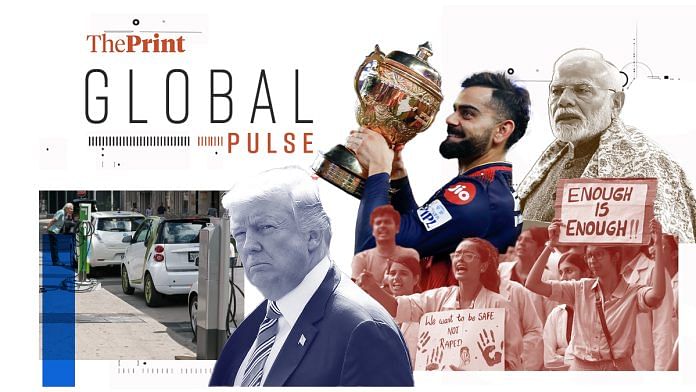New Delhi: US President Donald Trump’s decision to scrap visa interviews has left Indian students in the lurch—particularly those who scrimp and save for years in order to study abroad, report Hannah Ellis-Peterson and Aakash Hassan in The Guardian.
“Families in India will often invest their entire life savings to send their children to study in the US and last year there were more than 330,000 Indians enrolled at American universities, more than any other foreign nationality, overtaking Chinese students in numbers for the first time in years,” says the report.
Meanwhile, in Bihar, there is outrage over the death of a 10-year-old rape victim owing to mismanagement on part of hospital authorities, report Seetu Tewary and Cherylann Mollan in the BBC.
“The child’s plight began making news after a viral video showed members of the opposition Congress party arguing with hospital staff, demanding that she be admitted,” states the report, adding that Opposition parties in the state have held several protests since the death.
In sports, ‘King Kohli’ is finally an IPL trophy holder. His team, the Royal Challengers Bengaluru, secured their first victory last evening, reports the Associated Press.
“This win is as much for the fans as it is for the team. It has been 18 long years,” said Kohli, who has been associated with the Bengaluru team since the inaugural edition in 2008.
“I have given my youth, my prime. I gave it everything I have—I never thought this day would come. I was overcome with emotion as soon as the last ball was bowled,” he added.
While IPL dominates headlines, another pitch is proving tougher—India’s EV policy designed to attract global automakers into manufacturing locally might just be a non-starter, reports Alisha Sachdev in Bloomberg. The programme was introduced in March of last year and the government is now preparing to receive applications.
“Tesla is unlikely to participate as it isn’t keen on manufacturing locally and instead wants dealerships and showrooms to sell imported cars,” said HD Kumaraswamy, India’s heavy industries and steel minister, “without elaborating”, the report says.
“Tesla has long wanted to enter India, but disagreements over import duties and local manufacturing commitments have stalled progress,” it adds.
Chinese auto firm BYD CO. is also unlikely to participate with “lingering angst” between the two nations.
In the weeks that have passed since Operation Sindoor, Indian news channels have lost credibility in the eyes of the foreign press, reports Karishma Mehrotra in the Washington Post.
India’s news channels routinely “echo government talking points”, and journalists were “dismayed” by the absence of fact-checking during the conflict, the report says.
“Just before midnight on May 8, in a WhatsApp message exchange seen by The Post, a journalist with a major Hindi-language network messaged colleagues: ‘Indian Navy can carry out an attack imminently’, citing unnamed sources. Another staffer responded simply, ‘Karachi’, but gave no details on sourcing. Within minutes, the channel was falsely reporting that the Indian Navy had struck the port in Karachi, Pakistan’s largest city,” says one instance cited by The Post.
Narendra Modi is likely to skip this year’s G-7 meeting in Alberta. But, according to “Indian media reports” no invitation was received by the Indian Prime Minister—a sign of decaying relations with Canada, following the killing of Sikh separatist Hardeep Singh Nijjar, writes Biman Mukherji in the South China Morning Post.
“While positive messages have been discreetly exchanged between Delhi and Ottawa, analysts say the foundations for a more robust relationship still need to be laid. A first step could involve appointing high commissioners in each other’s capitals—positions that have remained vacant since the fallout over Nijjar’s killing,” he writes.
(Edited by Zinnia Ray Chaudhuri)
Also read: India-EU inch closer to trade deal & Indian aviation’s Turkish purge




